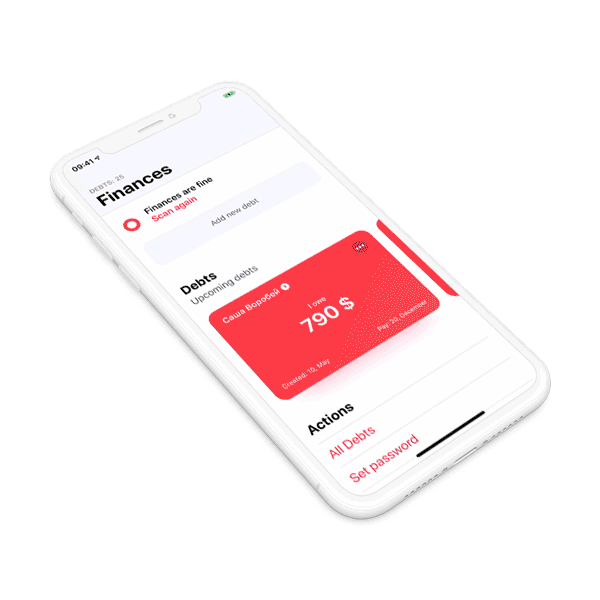Modal controller like in Mail or Apple Music application. Similar animation and transition. I tried to recreate all the animations, corner radius and frames. Controller supports gestures and Navigation Bar and works with ScrollView. You can watch how to use pod tutorial on YouTube.
Preview GIF is loading 3mb. Please, wait.
You can download example from AppStore. If you want to buy source code of the app shown on the GIF above, please go to xcode-shop.com. Price: $200.
I have a store where I sell applications and modules for Xcode projects. You can find source codes of applications or custom animations / UI. I regularly update the code. Visit my website to see all items for sale: xcode-shop.com. On the website you can find previews and for some items links to AppStore.
Swift 4.2. Ready for use on iOS 10+
Put Source/SPStorkController folder in your Xcode project. Make sure to enable Copy items if needed and Create groups.
Or via CocoaPods:
pod 'SPStorkController'Create controller and set transitioningDelegate to SPStorkTransitioningDelegate object. Use present or dismiss functions:
import UIKit
import SPStorkController
class ViewController: UIViewController {
override func viewDidAppear(_ animated: Bool) {
super.viewDidAppear(animated)
let controller = UIViewController()
let transitionDelegate = SPStorkTransitioningDelegate()
controller.transitioningDelegate = transitionDelegate
controller.modalPresentationStyle = .custom
self.present(controller, animated: true, completion: nil)
}
}Please, do not init SPStorkTransitioningDelegate like this:
controller.transitioningDelegate = SPStorkTransitioningDelegate()You will get an error about weak property.
You can see how to use SPStorkController and how to customize it in this video. For English speakers I’ve added subtitles, don’t forget to turn them on:
On my YouTube channel you can find videos about Xcode and Design. I would appreciate it if you like and subscribe. If you do not want to watch the video, I wrote a small wiki below.
To set light status bar for presented controller, use preferredStatusBarStyle property. Also set modalPresentationCapturesStatusBarAppearance. See example:
import UIKit
class ModalViewController: UIViewController {
override var preferredStatusBarStyle: UIStatusBarStyle {
return .lightContent
}
override func viewDidLoad() {
super.viewDidLoad()
self.modalPresentationCapturesStatusBarAppearance = true
}
}- Parameter
isSwipeToDismissEnabledenables dismissal by swipe gesture. Default istrue:
transitionDelegate.isSwipeToDismissEnabled = true- Parameter
isTapAroundToDismissEnabledenables dismissal by tapping parent controller. Default istrue:
transitionDelegate.isTapAroundToDismissEnabled = true- Parameter
showIndicatorshows or hides top arrow indicator. Default istrue:
transitionDelegate.showIndicator = true- Parameter
customHeightsets custom height for modal controller. Default isnil:
transitionDelegate.customHeight = 350The project uses a snapshot of the screen in order to avoid compatibility and customization issues. Before controller presentation, a snapshot of the parent view is made, and size and position are changed for the snapshot. Sometimes you will need to update the screenshot of the parent view, for that use static func:
SPStorkController.updatePresentingController(modal: controller)and pass the controller, which is modal and uses SPStorkTransitioningDelegate
You may want to add a navigation bar to your modal controller. Since it became impossible to change or customize the native controller in swift 4 (I couldn’t even find a way to change the height of the bar), I had to recreate navigation bar from the ground up. Visually it looks real, but it doesn’t execute the necessary functions:
import UIKit
class ModalController: UIViewController {
let navBar = SPFakeBarView(style: .stork)
override func viewDidLoad() {
super.viewDidLoad()
self.view.backgroundColor = UIColor.white
self.navBar.titleLabel.text = "Title"
self.navBar.leftButton.setTitle("Cancel", for: .normal)
self.navBar.leftButton.addTarget(self, action: #selector(self.dismissAction), for: .touchUpInside)
self.view.addSubview(self.navBar)
}
}You only need to add a navigation bar to the main view, it will automatically layout. Use style .stork in init of SPFakeBarView. Here is visual preview with Navigation Bar and without it:
To use SPFakeBarView you need to install SparrowKit pod:
pod 'SparrowKit'If you use UIScrollView (or UITableView & UICollectionView) on your controller, I recommend making it more interactive. When scrolling reaches the top position, the controller will interactively drag down, simulating a closing animation. To do this, set the delegate and in the function scrollViewDidScroll call:
func scrollViewDidScroll(_ scrollView: UIScrollView) {
SPStorkController.scrollViewDidScroll(scrollView)
}Working with a collections classes is not difficult. In the Example folder you can find an implementation. However, I will give a couple of tips for making the table look better.
Firstly, if you use SPFakeBarView, don't forget to set top insets for content & scroll indicator. Also, I recommend setting bottom insets:
tableView.contentInset.top = self.navBar.height
tableView.scrollIndicatorInsets.top = self.navBar.height
tableView.contentInset.bottom = self.safeAreaInsets.bottom
tableView.scrollIndicatorInsets.bottom = self.safeAreaInsets.bottomPlease, also use SPStorkController.scrollViewDidScroll() function in delegate for more interactiveness with your collection or table view
If you want to present modal controller on SPStorkController, please set:
controller.modalPresentationStyle = .customIt’s needed for correct presentation and dismissal of all modal controllers.
Here I would like to offer you my other projects.
Project SPPermission for managing permissions with customizable visual effects. Beautiful dialog increases the chance of approval (which is important when we request notification). Simple control of this module saves you hours of development. You can start using project with just two lines of code and easy customization!
SPStorkController was formerly a part of SparrowKit library. In the library you can find many useful extensions & classes. To install via CocoaPods use:
pod 'SparrowKit'SPStorkController is released under the MIT license. Check LICENSE.md for details.
If you need any application or UI to be developed, message me at hello@ivanvorobei.by. I develop iOS apps and create designs, too. I use swift for development. To request more functionality, you should create a new issue.
Here are my apps in AppStore: first account & second account.



